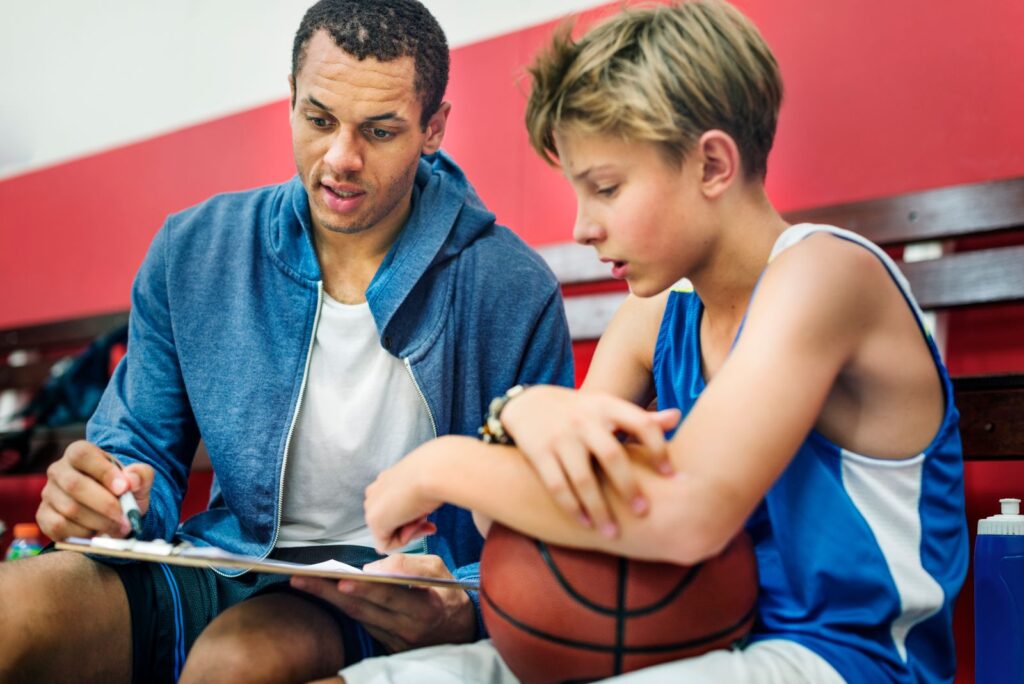When you coach young athletes, you do more than just train them in specific skills or tactics. You shape their habits, instill values, and help them develop a mindset they’ll carry for years to come. While athletic performance is important, every sports career—whether at the high school, collegiate, or even professional level—eventually comes to an end. This is why it’s crucial for coaches to focus on life beyond the playing field. Below are some key strategies to ensure your athletes are ready for whatever comes next.

1. Emphasize Holistic Development
Academic and Career Preparedness
Encourage your athletes to keep academics or career exploration a priority. Even students who aspire to go pro need a backup plan in case of injury or changing interests.
- Study Support: Provide flexible training schedules around exams or important school projects.
- Career Talks: Invite professionals from various fields to speak about different career paths and the value of a well-rounded education.
Character and Values
Coaches have a unique platform to nurture personal growth. Reinforce discipline, integrity, teamwork, and respect—qualities that translate directly into the workplace and relationships after sports.
2. Teach Transferable Skills
Leadership and Communication
Team captains aren’t the only ones who can benefit from leadership lessons. Encourage every player to speak up, mentor newcomers, or coordinate team events. Strong communication skills are invaluable in every aspect of life.
Resilience and Adaptability
Athletes learn to handle defeats, manage injuries, and recover from setbacks. Frame these challenges as lessons in resilience. Explain how this same grit will serve them well in college classes, job interviews, and beyond.
3. Promote Healthy Lifestyle Habits
Nutrition and Wellness
Educate players on balanced diets, hydration, and sleep. Good health habits contribute to better athletic performance now and a healthier life later.
- Nutritional Workshops: Host short seminars or bring in a dietitian to talk about creating balanced meals.
- Mental Health Support: Remind athletes that stress and burnout are common at every level. Encourage open communication and direct them to professional resources if needed.
Long-Term Physical Care
Overtraining and untreated injuries can lead to chronic issues later in life. Encourage recovery strategies—like stretching, foam rolling, and proper rest—and make sure your athletes understand when to seek medical advice.
4. Foster Self-Reflection and Goal Setting
Short-Term vs. Long-Term Goals
Help athletes set both performance-based goals (like improving a sprint time) and personal-development goals (like learning to manage stress). This dual approach keeps them focused on immediate tasks while nurturing life skills.
Progress Tracking
Regular check-ins teach students to evaluate their own growth. Whether that’s improved statistics in a game or developing better study habits, reflection fosters self-awareness and accountability—traits that empower them to manage their future.
5. Encourage Strong Support Networks
Mentorship
Pair younger athletes with more experienced teammates or offer opportunities to connect with alumni. Building these relationships gives them role models for navigating both sports and life transitions.
Community Engagement
Organizing charity events or volunteer projects helps athletes recognize their ability to make a difference. Engaging with their community fosters a sense of responsibility and citizenship they’ll carry forward.
6. Celebrate Achievements Beyond the Field
Remember to give as much attention to a student’s achievements in the classroom, workplace, or community as you do to their on-field successes. When athletes see that their off-field endeavors are valued, they learn that their identity isn’t solely defined by sports.
Coaches have the incredible power to shape not just winning teams, but also confident, adaptable, and well-rounded individuals. By viewing sports as a vehicle for personal growth rather than the end-all-be-all, you prepare athletes for the broader game of life. Encourage them to aim high in every aspect—academically, professionally, and socially—knowing their sports journey is just one step in a much larger adventure.
Focus on holistic growth, teach critical life skills, and celebrate achievements both on and off the field. This approach not only helps young athletes succeed now but also sets them on a path toward a fulfilling future—long after the final whistle has blown.
